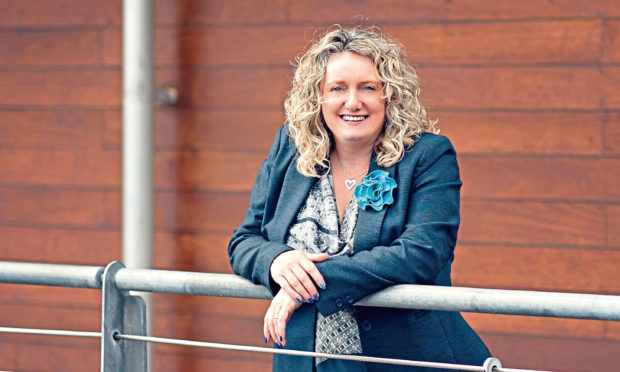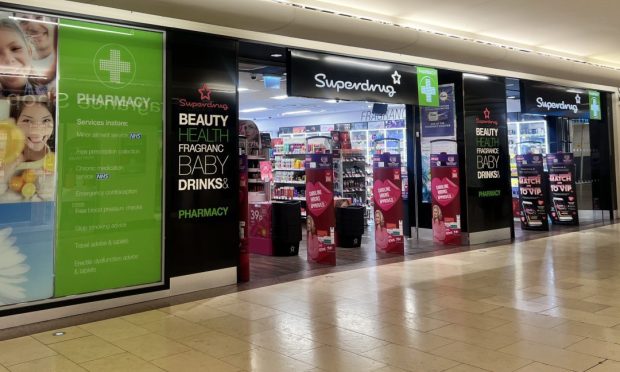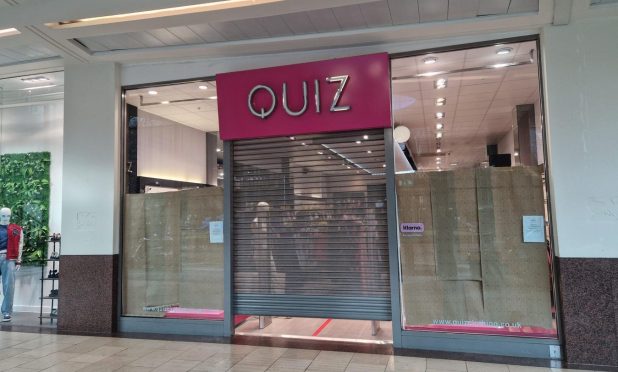The coronavirus will have a “devastating” impact on the business landscape in Tayside and Fife, putting thousands of jobs at risk.
That’s the view of Dundee and Angus Chambers of Commerce chief executive Alison Henderson, who said she had been inundated with calls from concerned members.
She said there was huge concern from businesses owners across many sectors – not just the highly visible impact on retailers, bars and restaurants, but also exporters struggling to get their goods over borders and others facing supply chain interruptions.
Ms Henderson, who represents more than 700 businesses, said action and clarity from Government was essential.
“There are a lot of businesses in a precarious position,” she said.
“The coronavirus is going to have a devastating impact. Some businesses are now having to consider at what point they close their doors.”
She said firms should be proactive about accessing support and innovating during the crisis.
The Scottish Government has introduced a range of measures including a 75% rates relief for smaller retail, hospitality and leisure firms as well as a rates freeze and a multi-million pound fund to provide grants of at least £3,000 to small businesses in certain sectors.
But Ms Henderson said it was now time for additional steps such as utility bill and mortgage holidays.
“If the Government doesn’t step in then you’ve got to wonder where we’ll be in four weeks never mind the end of the year,” she said.
“We need to encourage business owners to not be rabbits in the headlights but adapt quickly and find a way of getting services to customers.”
Colin Borland, director of devolved nations for the Federation of Small Business (FSB), said it was hard to think of a business sector that wouldn’t be impacted by coronavirus.
He said financial support would be key to stop normally profitable businesses from going under.
“It’s not profitability that kills businesses, it’s a lack of cash,” he said.
“The announcements we saw in the budget last week and the support we saw from the Scottish Government at the weekend was welcome but time is of the essence.
“That money has to get to businesses that need it now and with the minimum of bureaucracy.
“We have members that are telling us they only have three or four weeks left before they need to take drastic action. The sands of time are ticking.
“There’s going to have to be a higher level of practical support so we don’t see businesses hitting the wall.
“The real risk here is that you see perfectly viable, otherwise sound businesses going under simply because of cash flow issues.”
Yesterday, as Laura Ashley entered administration and Carphone Warehouse said it would close its standalone shops, large High street retailers banded together to call on the chancellor to suspend business rates bills as a form of immediate assistance against the impact of coronavirus.
Ewan MacDonald-Russell, head of policy at Scottish Retail Consortium, said the grocery sector had seen “Christmas levels of buying” as people stockpile essential items and home improvement firms had also been performing well.
“But on the other side we are seeing a real drop in fashion and discretionary spending,” he warned.
“Those businesses have seen a marked reduction in footfall and we expect that to get worse.
“Some of these businesses don’t have huge cash reserves and now they might have to shut – it’s truly an enormous challenge some business are facing.
“The Scottish Government’s announcement on Saturday of rates freezing, of deferring payments are what we’d asked from Holyrood right now but genuinely it might not be enough. This is moving so fast.
“We could soon be looking at shops having to shut their doors while they have significant outgoings and no income.
“It’s probably the case that the Government is going to have to step in in some way to keep those businesses and jobs going.”
Dr Liz Cameron, the chief executive of Scottish Chambers of Commerce, said many businesses had been “thrust into turmoil” and faced an uncertain future.
“We have engaged with our members across the Scottish Chamber network on a daily basis and the responses have been eye opening,” she said.
“Significant numbers are reporting issues over cancelled bookings, orders and cashflow; disruption to supply chains and facing wholesale redesign of their business models, which heap on extra cost burdens.
“The knock-on effect for thousands of employees and casual workers cannot be underestimated, nor the impact on local economies as already fragile hospitality and tourism businesses face closure for a time that is yet to be determined.
“What is clear is that the coronavirus will further weaken an already stagnant UK economy, which was set for weak export growth and business investment due to uncertainty over future trading arrangements and increasing business costs.
“The disruption to business because of Covid-19 is now a matter of business survival.”










